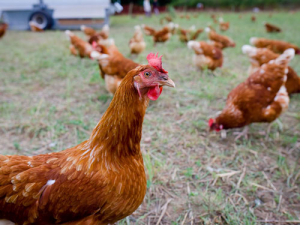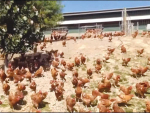Executive director Michael Brooks says that under current law, by 2022 a certain percentage of NZ’s cages have to be gone – depending on their age – and by late 2022 all battery cages will have to be gone.
“That will make us the only place in the world, after the EU, where this has happened. Australians have just done their review and decided to keep some cages,” Brooks says.
However in NZ, after 2022 colonies, barn and free range will be the only systems allowed.
Last year, the two NZ supermarket chains said they would no longer take colony eggs and would only accept barn and free range supplies.
Brooks says a farmer told him that one week before the supermarket chain he supplied made that decision, he had paid $750,000 to put in a new colony system.
Brooks says extremist views propagated by activist groups such as Safe are a big concern for the industry.
“They are a big, international organisation. In NZ they have three offices and 25-30 staff these days and a lot of money. Their power on social media with the supermarkets and the general public is huge.”



















